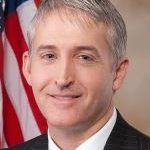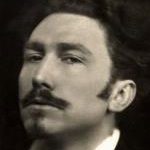 Well, since it is the anniversary of the 9/11 attacks, I guess I should say something. As horrific as it was, I will admit to it not greatly effecting me. It was a terrorist attack. Those are awful. And it was an amazingly successful one. I’ve always figured that it out performed Osama bin Laden’s greatest fantasies. But that was just it: it was an exceptional event in the literal sense of the word. It wasn’t like the attack on Pearl Harbor, which was done by an actual powerful country with lots of money and a big military.
Well, since it is the anniversary of the 9/11 attacks, I guess I should say something. As horrific as it was, I will admit to it not greatly effecting me. It was a terrorist attack. Those are awful. And it was an amazingly successful one. I’ve always figured that it out performed Osama bin Laden’s greatest fantasies. But that was just it: it was an exceptional event in the literal sense of the word. It wasn’t like the attack on Pearl Harbor, which was done by an actual powerful country with lots of money and a big military.
But I get it. The people I know from New York have a whole different attitude about it. But frankly, pretty much everyone has a different attitude about it than I do and did. As I wrote on that very day, “The result [of our response]: a huge tragedy — a bigger tragedy than even today’s — though, admittedly, not as concentrated.” I didn’t know about Afghanistan, much less Iraq. And it continues on because the “war on terror” continues on. It justifies continual war. In an important sense, we are never at war now because we are always at war.
Scott Eric Kaufman posted a great sort article by Siva Vaidhyanathan, What We Should Never Forget on 9/11. It is a list of eight things we should never forget that are not on most people’s lists of what not to forget. For most people, the thing we shouldn’t forget is that we were attacked for no reason at all. It’s the usual American myth: we were just standing around minding our own business and people got mad at us! Nothing justifies murder, but just as our country justifies all the killing that it does based upon past wrongs, so too does al-Qaeda. They have their reasons and we would be a whole lot better off looking at just how valid our own reasons are than in feeling superior to a bunch of angry terrorists.
One thing on Vaidhyanathan list really struck me, “One security technology could have prevented the hijackings — secure and solid cockpit doors. The airlines fought FAA proposals for them for decades.” This was something that really bugged me. Not long after the attacks, I flew with my wife to Florida and there were the flimsy cardboard doors that wouldn’t stop a determined toddler. It wasn’t until recently that I found out that the planes had eventually been retrofitted with these solid doors.
But I had no idea that the FAA had been pushing for these doors for decades. And you would think that would have been big news. Almost 3,000 people died and they wouldn’t have if the airline industry hadn’t been so powerful and so determined not to spend a dime on safety that could go to profits. But you see, that would have been making the case that the bureaucracy ought to be more powerful and independent. And as everyone “knows”: the government is the source of all our problems and the answer to none.
In the end, we got the doors. The government did make some of the changes that were necessary. But mostly, we got a lot of nonsense. We got the Patriot Act. We got mass surveillance. We got lots of propaganda about how we ought to all act as police officers and rat out anyone who didn’t look right — or be on the lookout for any suspicious packages like accordions.
I don’t think that the world changed on 11 September 2001. And the sad thing is that I don’t think anyone else really thinks so either — although I’m sure many did at the time. But it sure is used to make America even less like its ideals than it used to be.






The FAA can issue an airworthiness directive that compels US carriers to make specified upgrades or changes. I wonder if the cockpit door is somehow outside the scope of that authority.
I suspect that they did have the power. But you know the way it is. If the bureaucracy had pushed too hard, the airlines would have run to their protectors in Congress and that would have been that. Maybe that is what happened. I’m just not interested enough at this point to go research it.
The myth that “America” (actually just the finance and defense industries) was attacked for no reason whatever on 9.11 is part of a much older national mythic construct. Americans regularly make such claims to bolster their own self-regard, their self-perception as wronged innocents, and also to justify the cathartic violence that gives nationalism much of its appeal. Cf “Remember the Raisin” (in the War of 1812), “Remember the Alamo,” “Remember the Maine,” and “Remember Pearl Harbor.” Robert Owens calls this a culture of “violent self-pity,” a good turn of phrase.
You’re right: that’s a great phrase. Actually, my anniversary post tomorrow (5:05 am PDT) has to do directly with this: sunk costs and wars. Got to keep the people remembering why it is we are killing and dying!
Very nice blog you have! I will have to spend some time on it when business slows a bit.